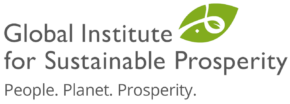“This policy note is based on a detailed analytical policy report (with accompanying citations, references and appendices) available on the Global Institute for Sustainable Prosperity website as Policy Report No. 102 (February 2018). Essentially, this policy note reviews how one of the poorest (and newest) countries in the world is addressing the United Nations’ Sustainable Development Goals (SDGs). All 193 countries under the United Nations are signatories to the SDGs. The country under review in this note is Timor-Leste (East Timor), whose current economic development is underpinned almost exclusively by an extractive resource-export dependency on oil and gas. This dependence has serious negative implications for social equity and inclusion, as well as for the global natural environment. In parallel with this State-based resource development, there is a very strong bottom-up community development SDGs agenda being conducted by non-government organisations (NGOs), civil society organisations (CSOs) and cooperatives. These are two distinct and unconnected development models that are currently operating in Timor-Leste (TL) and are both supportive of the SDGs agenda. Yet, both on their own are not viable as long-term strategies for sustainable development of the country.”

